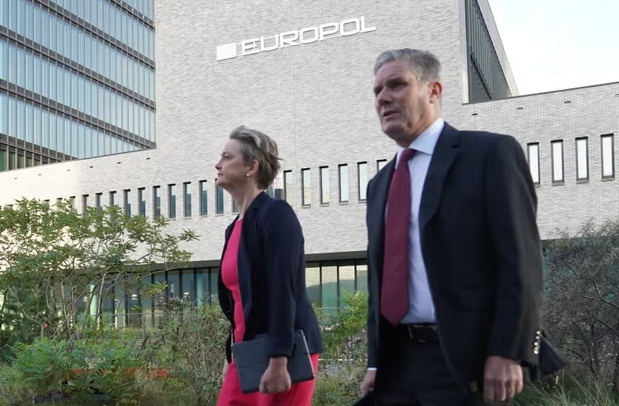The UK Home Office published the latest figures on illegal migration and asylum claims on Thursday. There were 38,784 illegal arrivals in the 12 months to June 2024, representing a 26% drop from the previous year.
Of these, 81%, or 31,493, made the dangerous journey across the Channel in small boats. This figure is 29% lower than the 44,460 arrivals on small boats in the year ending June 2023.
Despite the overall drop in numbers, the average number of people per boat rose to 51, up from 44 in the previous year, suggesting that smugglers are increasingly cramming more people onto each vessel.
While the government continues to grapple with the complexities of managing migration, the number of people awaiting an initial decision on their asylum claims remains a key issue.
By the end of June 2024, 118,882 people were still awaiting an initial decision, a slight increase from 118,329 at the end of March 2024.
Nevertheless, this is a significant drop of 32 per cent from the record high of 175,457 recorded in June 2023. Of those waiting, 76,268 have been on the waiting list for more than six months, although this number is down 46 per cent from last year’s record high of 139,961.
Home Secretary Yvette Cooper reiterated her commitment to tackling illegal migration, announcing plans to reopen two immigration centres as part of a wider strategy to increase the number of people being removed who have no legal right to remain in the UK.
Cooper, who has been criticised by migrant rights campaigners, said the Border Security Command would step up its activities.
She emphasised that 100 officers from the National Crime Agency had been brought in to reinforce the border. According to Cooper, they are to thwart “criminal gangs operating transport operations” and prevent migrants from travelling dangerously across the sea in boats. The minister also announced sanctions against negligent employers who hire migrants illegally.
For more than 10 years, each of Britain’s governments has promised to reduce the number of migrants. Britons who supported leaving the EU believed that the country’s immigration problems were due to EU pressure on it. But Brexit didn’t help: while net immigration in the year before the referendum in 2015 was 329,000, according to Reuters, it will be 745,000 in 2022, according to the Office for National Statistics.
